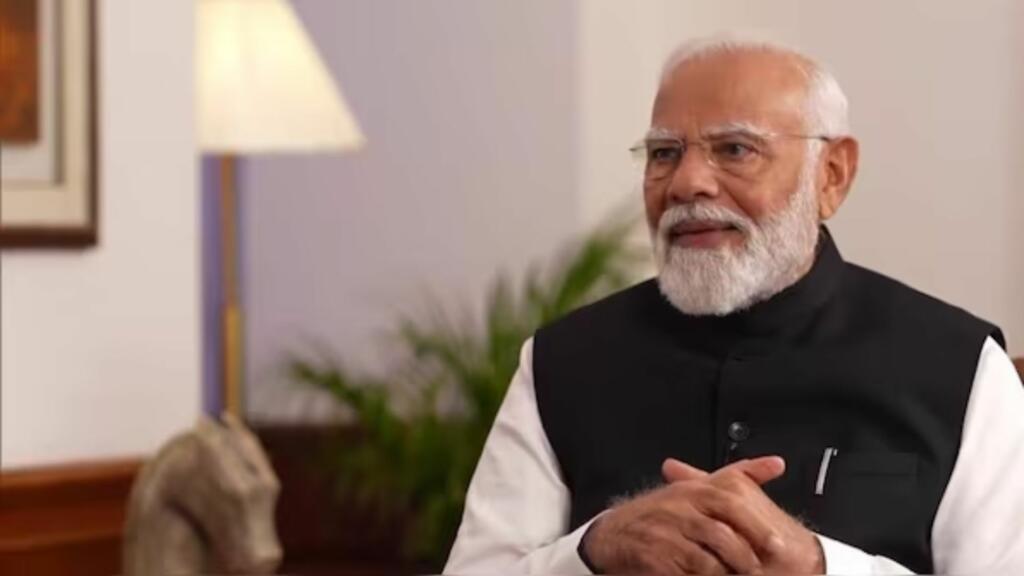Prime Minister Narendra Modi, in a recent interview ahead of the 2024 Lok Sabha elections, has emphatically rejected the notion of a ‘North vs South’ divide in India. His remarks underscore the cultural richness and diversity that define the nation.
The ‘North vs South’ narrative in India refers to the perceived differences between the northern and southern states of the country. This division has historical roots dating back to colonial times and has been perpetuated by various socio-economic factors.
During British rule, the British East India Company’s administrative headquarters were primarily located in the north, leading to greater economic and political focus on the northern regions. This resulted in disparities in development between the north and the south.
Perceived Differences
Historically, the northern states have had a larger share of industrial and agricultural production compared to the southern states. This has led to differences in income levels and economic development.
The northern and southern regions of India have distinct cultural identities, including languages, traditions, and cuisine. These differences contribute to perceptions of a cultural divide between the two regions.
The political landscape of India often reflects the North-South divide, with regional parties in the south sometimes advocating for greater autonomy or federalism, while national parties like the BJP traditionally have stronger bases in the northern states.
Criticisms Against the BJP
The Bharatiya Janata Party (BJP), despite being a dominant force in Indian politics, has faced criticism for its perceived neglect or inability to gain significant electoral traction in southern states like Tamil Nadu, Kerala, and parts of Karnataka and Andhra Pradesh.
Critics argue that the BJP’s policies and ideology, which are sometimes perceived as being more aligned with the interests of the northern states, have limited its appeal in the southern regions. Additionally, the party’s emphasis on issues such as Hindutva and Hindi as a national language has faced resistance in states with diverse linguistic and cultural identities.
Also Read: PM Modi’s Rally in Rajasthan: Prioritizing Border Villages “Last But Not Least”
PM Modi’s Rejection of the Divide
In his recent interview, Prime Minister Narendra Modi categorically rejected the ‘North vs South’ narrative as ‘mindless.’ He emphasized the importance of viewing India as a diverse and unified entity rather than as separate units divided by regional identities.
Emphasizing Diversity as Strength
Modi highlighted examples such as Tamil Nadu’s cultural heritage, particularly its association with Lord Ram, to underscore the richness of India’s diversity. By showcasing Tamil Nadu’s cultural contributions, Modi aimed to demonstrate that diversity is a source of strength rather than division.
Challenging Prevalent Perceptions
Modi’s rejection of the ‘North vs South’ narrative challenges prevalent perceptions and stereotypes that perpetuate regional divisions within India. By advocating for unity amidst diversity, Modi seeks to promote a sense of national identity that transcends regional boundaries.
Promoting National Unity
By rejecting the divisive narrative and celebrating India’s diversity, Modi promotes national unity and solidarity. His stance underscores the need to embrace cultural differences while fostering a shared sense of belonging and pride in being Indian.
Rich Cultural Tapestry
India boasts a vibrant tapestry of cultures, languages, traditions, and religious practices. From the colorful festivals of Holi and Diwali to the diverse cuisines spanning the length and breadth of the country, India’s cultural diversity is unparalleled.
Despite regional differences, India has a long history of cultural exchange and unity. Examples abound, such as the spread of Buddhism from its origins in northern India to the southern regions and the influence of Persian and Mughal cultures on Indian art, architecture, and cuisine.
Embracing diversity is essential for fostering national cohesion and resilience. It promotes tolerance, understanding, and mutual respect among India’s diverse communities, contributing to social harmony and unity.
Modi’s Personal Engagement with Cultural Diversity
During the 11-day ritualistic period before the consecration ceremony of Ram Mandir in Ayodhya, Prime Minister Modi visited the Srirangam Temple in South India. There, he immersed himself in the cultural heritage, studying the Kamba Ramayana and interacting with the local community.
Modi’s engagement with regional cultural nuances is evident in his efforts to bridge cultural gaps. His visit to the Srirangam Temple highlights his respect for South Indian traditions and his willingness to engage with diverse cultural practices.
Modi’s personal experiences exemplify his commitment to promoting cultural harmony and understanding across India. By actively participating in cultural rituals and engaging with diverse communities, Modi demonstrates a leadership style that celebrates India’s pluralistic identity.
Unity in Diversity: Modi’s Vision
Modi’s vision of ‘Unity in Diversity’ serves as a unifying ethos for the nation. He emphasizes the importance of embracing India’s diverse cultural heritage while fostering a sense of national pride and identity that transcends regional boundaries.
Modi advocates for inclusive policies and initiatives that respect and celebrate India’s pluralistic identity. This includes promoting cultural exchange programs, preserving cultural heritage sites, and ensuring equal opportunities for all citizens irrespective of their background.
Leadership plays a crucial role in fostering a sense of national unity and pride amidst diversity. Modi’s leadership style emphasizes inclusivity and unity, inspiring citizens to embrace their shared heritage and values while respecting the diversity that enriches the fabric of Indian society.
In conclusion, Prime Minister Narendra Modi’s rejection of the ‘North vs South’ divide echoes a broader message of embracing India’s rich diversity as a source of strength and unity. As the country prepares for elections, Modi’s call to celebrate cultural pluralism resonates as a reminder of India’s enduring ethos of ‘Unity in Diversity.’
Also Read: PM Modi’s Verdict: BJP’s National Agenda or Congress’s Familial Legacy?
